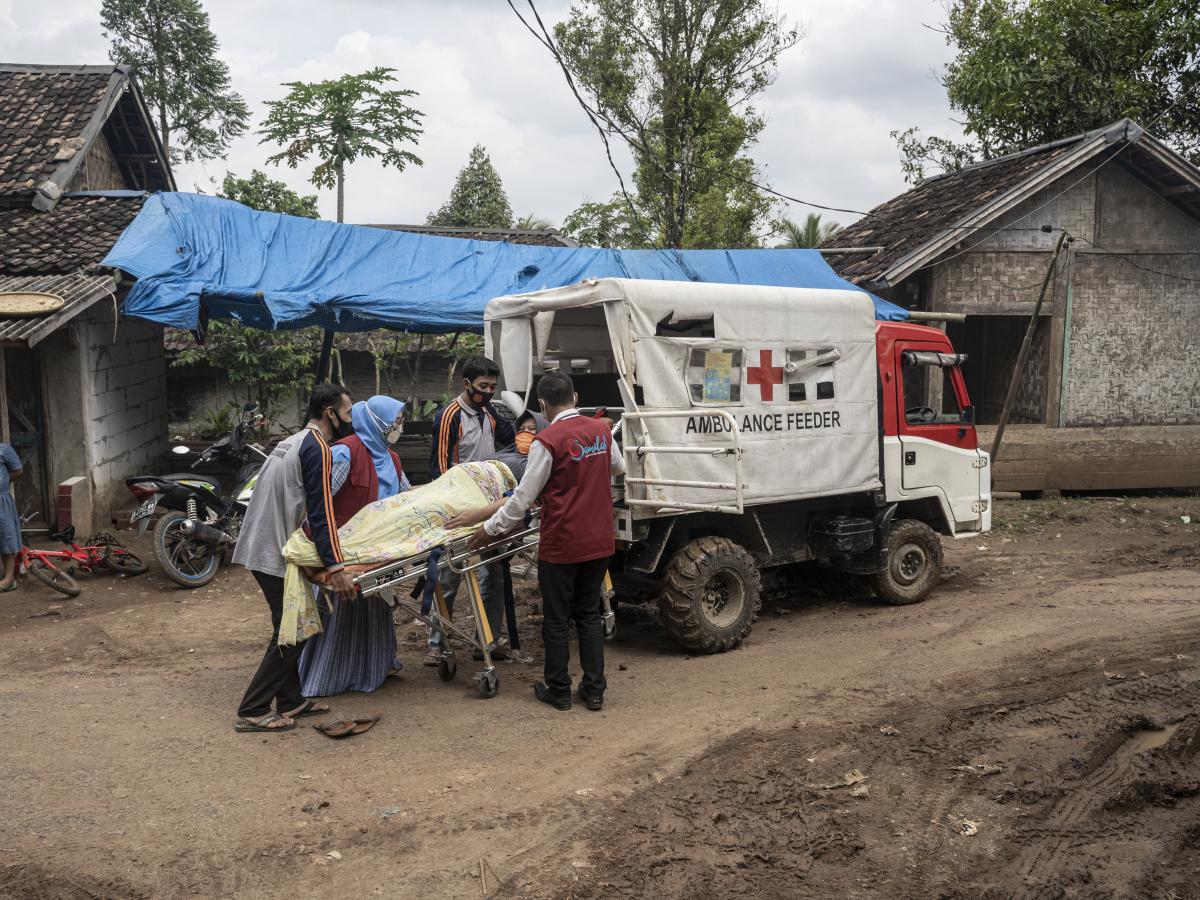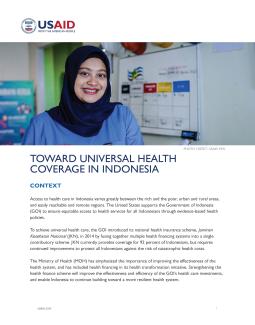Context
Access to health care in Indonesia varies greatly between the rich and the poor, urban and rural areas, and easily reachable and remote regions. The United States supports the Government of Indonesia (GOI) to ensure equitable access to health services for all Indonesians through evidence-based health policies.
To achieve universal health care, the GOI introduced its national health insurance scheme, Jaminan Kesehatan National (JKN), in 2014 by fusing together multiple health financing systems into a single contributory scheme. JKN currently provides coverage for 92 percent of Indonesians, but requires continued improvement to protect all Indonesians against the risk of catastrophic health costs.
The Ministry of Health (MOH) has emphasized the importance of improving the effectiveness of the health system, and has included health financing in its health transformation initiative. Strengthening the health finance scheme will improve the effectiveness and efficiency of the GOI’s health care investments, and enable Indonesia to continue building toward a more resilient health system.
USAID Health Financing Activity (USAID HFA)
USAID supports the GOI’s efforts to improve the policy, design, and implementation of health financing. USAID HFA works to: 1) boost progressive and sustainable revenue collection for health services in the USAID priority areas of HIV, tuberculosis, and maternal and newborn health; 2) improve pooling of funds to provide financial protection against ruinous expenses for families; and 3) improve strategic health purchasing mechanisms in a manner that increases efficiency of service delivery and equity of access to health services.
USAID HFA builds Indonesia’s ownership and expertise in developing and implementing evidence-based policy initiatives that lead to equitable, cost-effective, and sustainably financed health services. The program supports the effective implementation of the GOI's national health insurance scheme and aims to provide Indonesians greater access to affordable, high-quality health care.
Results
To date, USAID HFA has:
- Initiated a maternal and newborn strategic health purchasing pilot across 40 public and private primary healthcare facilities in Serang district, Banten, to ensure high-quality and efficient health services;
- Initiated a tuberculosis innovative financing pilot across 752 healthcare facilities in six districts, in collaboration with the Ministry of Health, the National Health Insurance Agency, and other development partners;
- Contributed to a data-driven and evidence-based dialogue and policy process in the issuance of the Ministry of Health’s decree on the JKN tariff, to enable better health services delivery and more efficient spending;
- Improved MOH capabilities in analysis, policy brief writing, and health insurance certification; and
- Engaged with 16 municipalities, 147 primary health facilities, 722 health workers, and 561 people living with HIV to generate evidence on the readiness of primary health facilities to provide HIV services.
Contact
Anastasia Susanto, USAID at asusanto@usaid.gov
Hasbullah Thabrany, USAID HFA at hthabrany@thinkwell.global


